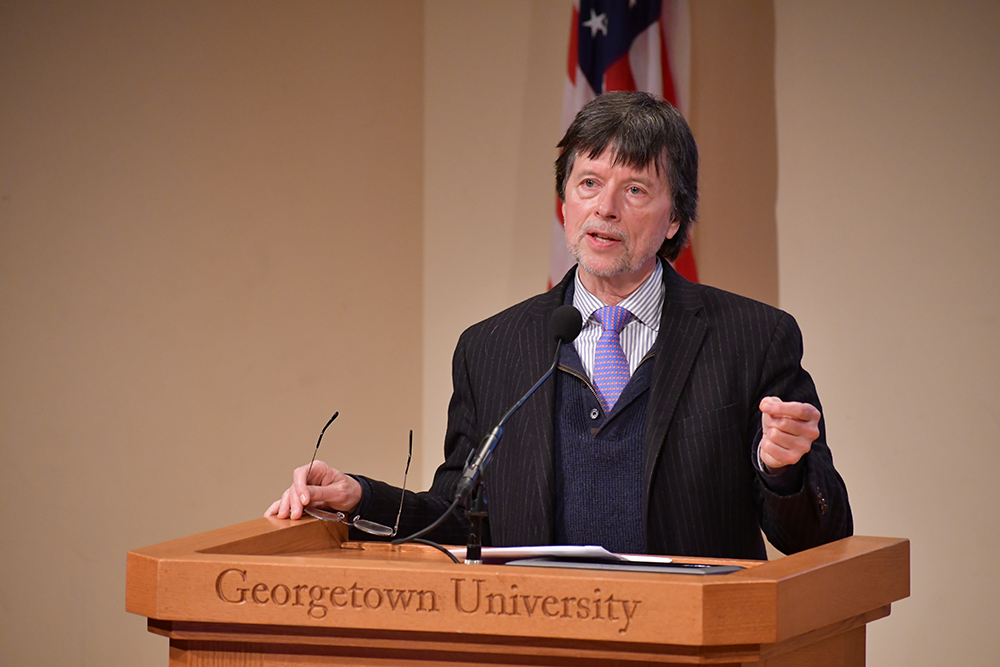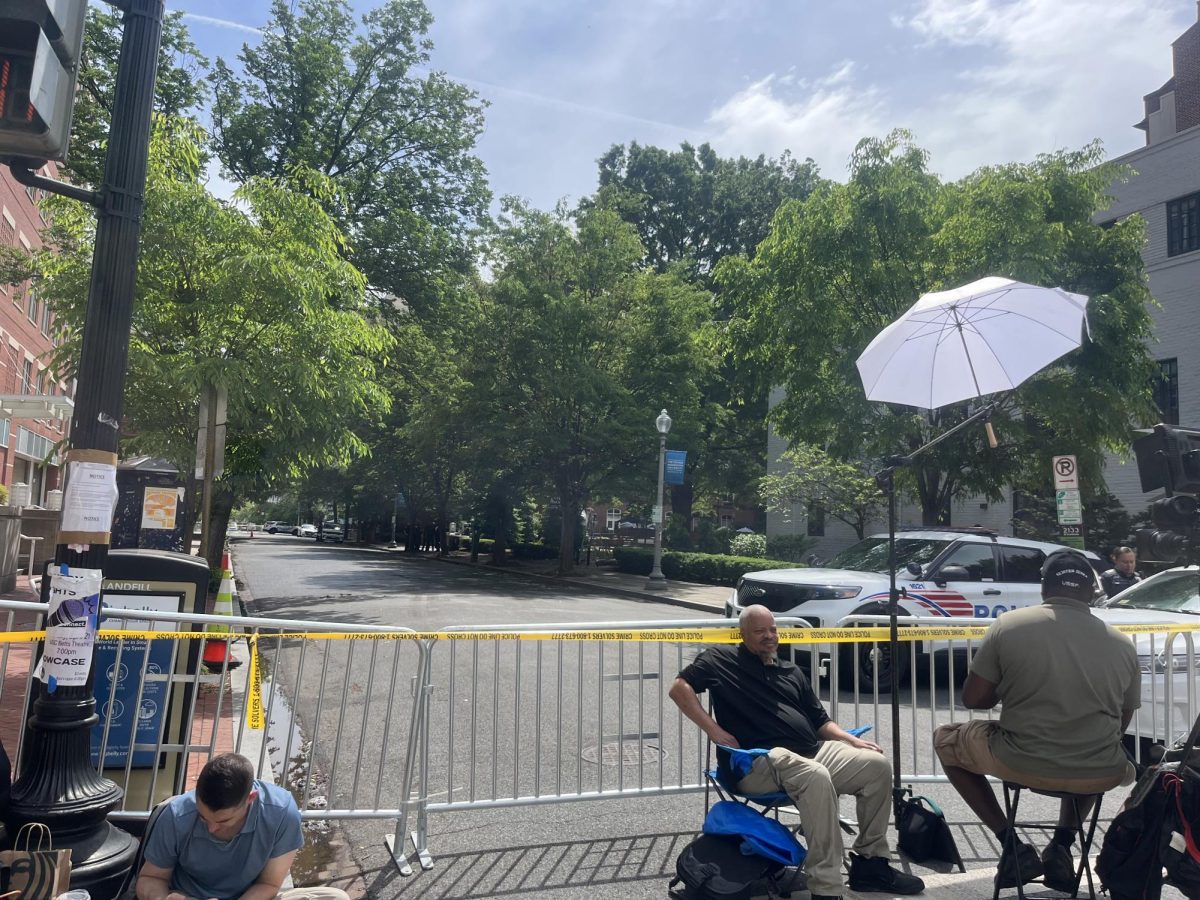Producing an engaging biographic film requires looking beyond the subject’s public reputation and searching for a new perspective, according to award-winning documentary filmmaker Ken Burns.
Burns and fellow filmmakers Lynn Novick, Amanda Vaill and Howard Bryant appeared on a panel at a Zoom event titled “Hemingway and Biography” on March 18. The event was moderated by Paul Elie, a senior fellow at Georgetown’s Berkley Center for Religion, Peace and World Affairs. During the hour-long presentation, the panelists discussed their newly curated three-part series, “Hemingway,” and played various clips from the six-hour program. The series is set to premiere on PBS stations from April 5 to April 6.
The focus of the film series, Ernest Hemingway, is considered one of the most influential writers of the 20th century, winning both the Pulitzer Prize and Nobel Prize for literature as well as serving as a war correspondent in World War II. Hemingway suffered in his personal life from severe depression and a history of alcholism, however, perhaps influenced by the suicide of several close family members, including his father.

Researching and representing Hemingway’s personal life and relationships was one of the biggest challenges of creating the biographical film, according to Burns.
“I think it’s important to say, first off, that all biography is failure. The person that’s closest to us in life remains inscrutable to the end,” Burns said at the event. “How can we presume to reach back a century or two and divine who someone is? We’re obligated to try, and that’s what we were trying to do here.”
One of the obstacles the filmmakers encountered was the difficulty in separating the fictionalized popular culture version of Hemingway and his inner emotions, innate qualities and thought processes, according to Bryant.
“In some ways, it’s like dealing with a Jackie Robinson or an Abraham Lincoln,” Bryant said at the event. “People know the work, but they don’t know the person.”
Burns has collaborated with Georgetown University President John J. DeGioia (CAS ’79, GRD ’95) in the past as part of an extended engagement the university has had with the filmmaker to discuss his latest projects.
The filmmakers were able to get closer to capturing the true Hemingway by filtering and analyzing the mythology surrounding the author’s life and cross-referencing it with their own research, according to Burns.
“The great impediment of this is trying to pierce the veil of this image that is self-curated by culture,” Burns said. “Once you get past it, you are actually able to touch and triangulate with that mythology.”
The filmmakers also discussed the abusive aspects of Hemingway’s romantic and familial relationships, as well as how Hemingway’s struggle with mental illness shines a light on contemporary issues within our society. In addition to his troubles with alcohol and depression, Hemingway had a tumultuous relationship with his family, and his romances and affairs were often highly publicized.
Some previous biographies of Hemingway portray the author and his actions in a negative light, but the film series does not try to make a definitive evaluation of Hemingway’s qualities, according to Novick.
“I don’t want to generalize. There are some great biographies, but I think we really came with an open mind and that it could be all of the above,” Novick said at the event. “We weren’t trying to prove a point about what a jerk he was or what a genius he was or what a great guy he was, but just presenting him as a fully dimensional person.”
Hemingway committed suicide in July 1961 at age 61, and literary scholars today continue to speculate on what drove him to take his own life.
The greatest takeaway audiences should learn from Hemingway’s story is that society needs to embrace mental health awareness instead of shunning it like Hemingway’s generation, according to Burns.
“If you have mental illness, please get help. Do not be ashamed by it,” Burns said. “This is a person for whom mental health held a kind of stigma, and no one talked about it.”





















Avinn • Mar 29, 2021 at 6:45 pm
Well written!